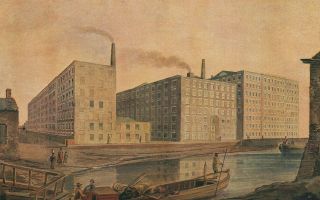Industrial Revolution Articles
Canal streets
The words ‘Canal’ and ‘Manchester’ may nowadays be most associated with a famous street, but 250 years ago they became synonymous with the dawn of a new era in Britain. The world at that time was changing dramatically, as pioneers of new technology invented machines that would bring the fruits of manual labour to the wider world and propel standards of living to levels beyond imagination.Mancunion Photo Editor, Nicholas BojdoThe words ‘Canal’ and ‘Manchester’ may nowadays be most associated with a famous street, but 250 years ago they became synonymous with the dawn of a new era in Britain. The world at that time was changing dramatically, as pioneers of new technology invented machines that would bring the fruits of manual labour to the wider world and propel standards of living to levels beyond imagination. Between 1740 and 1901 the population increased fivefold thanks to improved living conditions, sanitation and healthcare. During that time the urban landscape of Manchester changed considerably, thanks in part to the emergence of a new transport system: the Canal.
